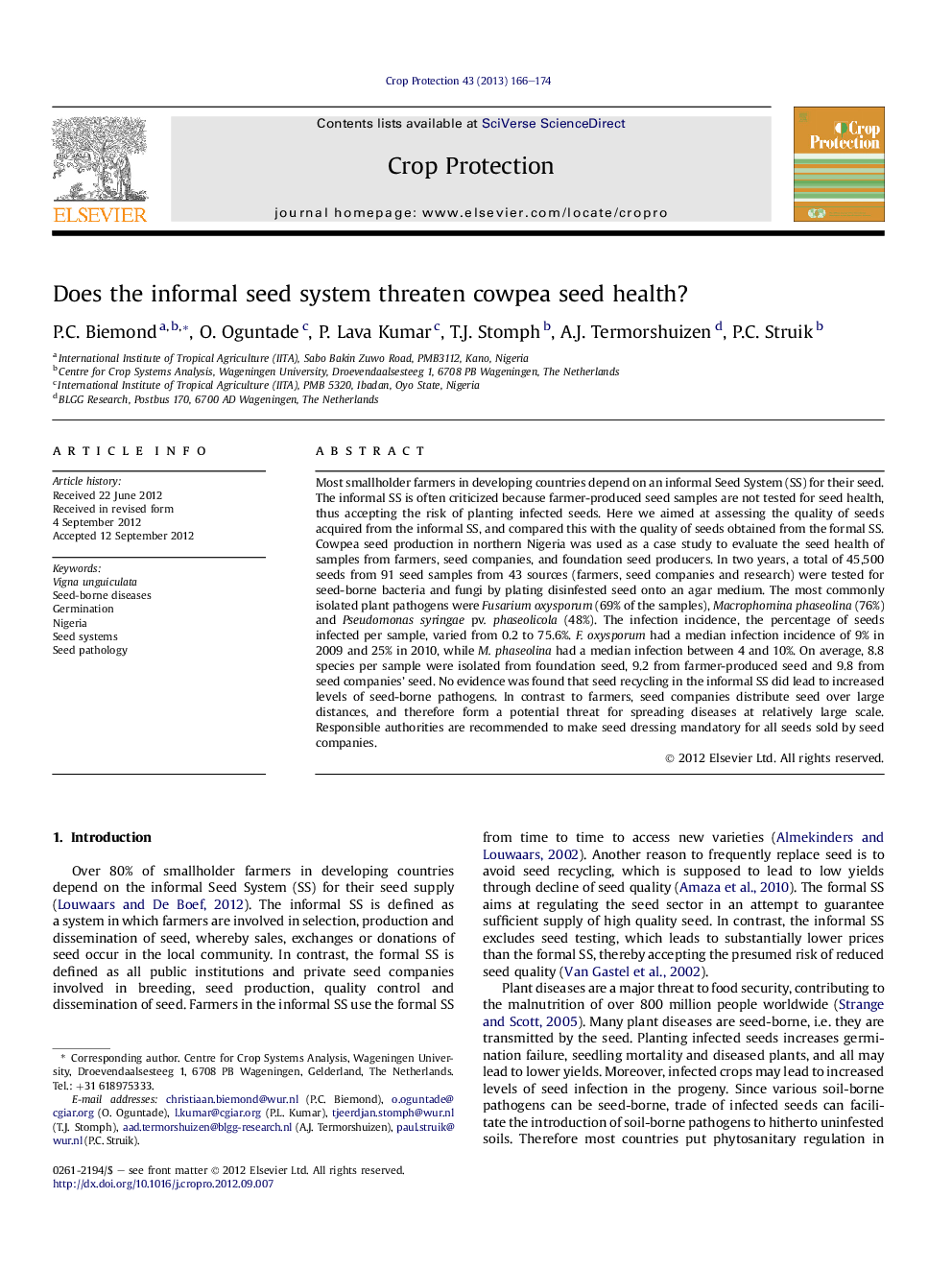| کد مقاله | کد نشریه | سال انتشار | مقاله انگلیسی | نسخه تمام متن |
|---|---|---|---|---|
| 4506115 | 1624344 | 2013 | 9 صفحه PDF | دانلود رایگان |

Most smallholder farmers in developing countries depend on an informal Seed System (SS) for their seed. The informal SS is often criticized because farmer-produced seed samples are not tested for seed health, thus accepting the risk of planting infected seeds. Here we aimed at assessing the quality of seeds acquired from the informal SS, and compared this with the quality of seeds obtained from the formal SS. Cowpea seed production in northern Nigeria was used as a case study to evaluate the seed health of samples from farmers, seed companies, and foundation seed producers. In two years, a total of 45,500 seeds from 91 seed samples from 43 sources (farmers, seed companies and research) were tested for seed-borne bacteria and fungi by plating disinfested seed onto an agar medium. The most commonly isolated plant pathogens were Fusarium oxysporum (69% of the samples), Macrophomina phaseolina (76%) and Pseudomonas syringae pv. phaseolicola (48%). The infection incidence, the percentage of seeds infected per sample, varied from 0.2 to 75.6%. F. oxysporum had a median infection incidence of 9% in 2009 and 25% in 2010, while M. phaseolina had a median infection between 4 and 10%. On average, 8.8 species per sample were isolated from foundation seed, 9.2 from farmer-produced seed and 9.8 from seed companies' seed. No evidence was found that seed recycling in the informal SS did lead to increased levels of seed-borne pathogens. In contrast to farmers, seed companies distribute seed over large distances, and therefore form a potential threat for spreading diseases at relatively large scale. Responsible authorities are recommended to make seed dressing mandatory for all seeds sold by seed companies.
► 45,500 seeds from 91 cowpea samples were tested for seed-borne bacteria and fungi.
► These tests resulted in a comprehensive list of seed-borne pathogens in northern Nigeria.
► Farmer-produced seed had less seed-borne pathogens than seed company samples.
► Seed recycling did not reduce cowpea seed health.
Journal: Crop Protection - Volume 43, January 2013, Pages 166–174